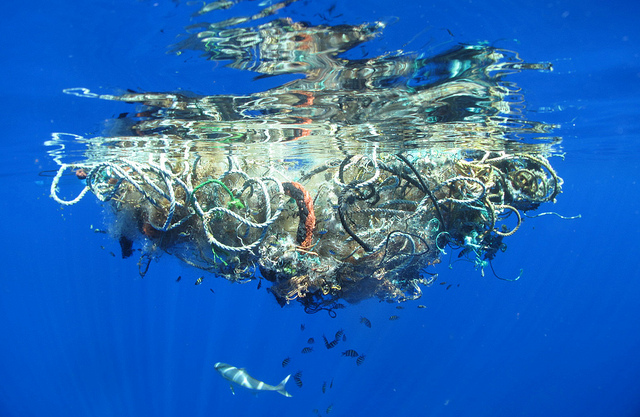If we needed another reason to be depressed about the state of the planet, then the World Economic Forum and Ellen MacArthur Foundation gave it with a report released last week that says by the year 2050, we’re “on track to have more plastic than fish, by weight, in the world’s oceans.”
The news is sobering for a number of reasons: not only does the presence of plastic in the ocean have a profound impact on the complex ecosystem that goes well beyond harming fish and aquatic mammals who ingest it thinking it’s food, but it also brings to attention our dependence on the stuff and how difficult it is to dispose of it.
While it may be tempting to write off plastic as “the enemy,” none of us can deny the positive impacts it has had on our lives. In her 2011 book, Plastic: A Toxic Love Story, author Susan Freinkel shows the important role that plastic played in shaping our current world. A question within the book is raised: “Where would we be without bike helmets, baggies, toothbrushes, and pacemakers?”
She has a point.
In fact, just walking into a hospital or clinic shows just how important plastic plays a role in our lives from the beginning to the end. Like many, I was born in a hospital, aided in part by medical instruments containing plastic, and my first bed was a plastic bassinet. It’s likely that I will die in one and if the #1 & #2 causes of death are still heart disease and cancer by the time I go, the chances are I will end my life in a hospital with tubes and catheters inserted in me that are made of plastic.
All that plastic has to be disposed of somehow.
Sadly, most of it is not recycled.
As USA Today reports, citing CNN Money, “[N]early a third of all plastic packaging escapes collection systems.” Right now about eight million tons ends up in the world’s oceans.
While some may be reading this and feel they are not part of the problem because they only use glass bottles, wrap their food in wax paper, and avoid plastic packaging, many plastics that we use are hidden.
For example, look at your clothing.
I recently met a smartly-dressed woman who claimed that no plastic entered her home. She was dressed in a way that can only be described as sporty-chic—perfect for the yoga studio and a cafe latte afterward. I recognized the brand of the sweater she had and wondered if she knew it was largely made of acrylic which, yes you guessed it, is plastic.
Another example is a personal one: until recently, before Obama signed a bill banning them, I had no idea those cool microbeads which exfoliated my lizard-like skin in the winter were actually made of plastic.
Furthermore, I type this piece from a laptop which is largely made of plastic.
My point is, most of us cannot simply eschew all plastic, even if we try. And if a few of us can, that still doesn’t account for the rest of the world’s population.
While we can and should demand more recycling of plastic, we also need legislation like the one banning microbeads and more technologies developing alternatives to traditional plastics—specifically those that are better for the planet, biodegradable, and can stop our oceans becoming nothing more than giant trashcans for our plastic waste.
Until then, I plan to do my part.
I stopped buying clothing with plastic fibers a while ago. At times it hasn’t been easy, but it’s worth it. While I may long for yoga pants that make my droopy butt look fab, I tell myself it just isn’t worth it in the long run. I want my future grandchildren to be able to go to the ocean and see it filled with sea life rather than the plastic rubbish of Grandma’s generation.
Author: Kimberly Lo
Editor: Catherine Monkman
Photo: Steven Guerrisi/Flickr


 Share on bsky
Share on bsky





Read 2 comments and reply